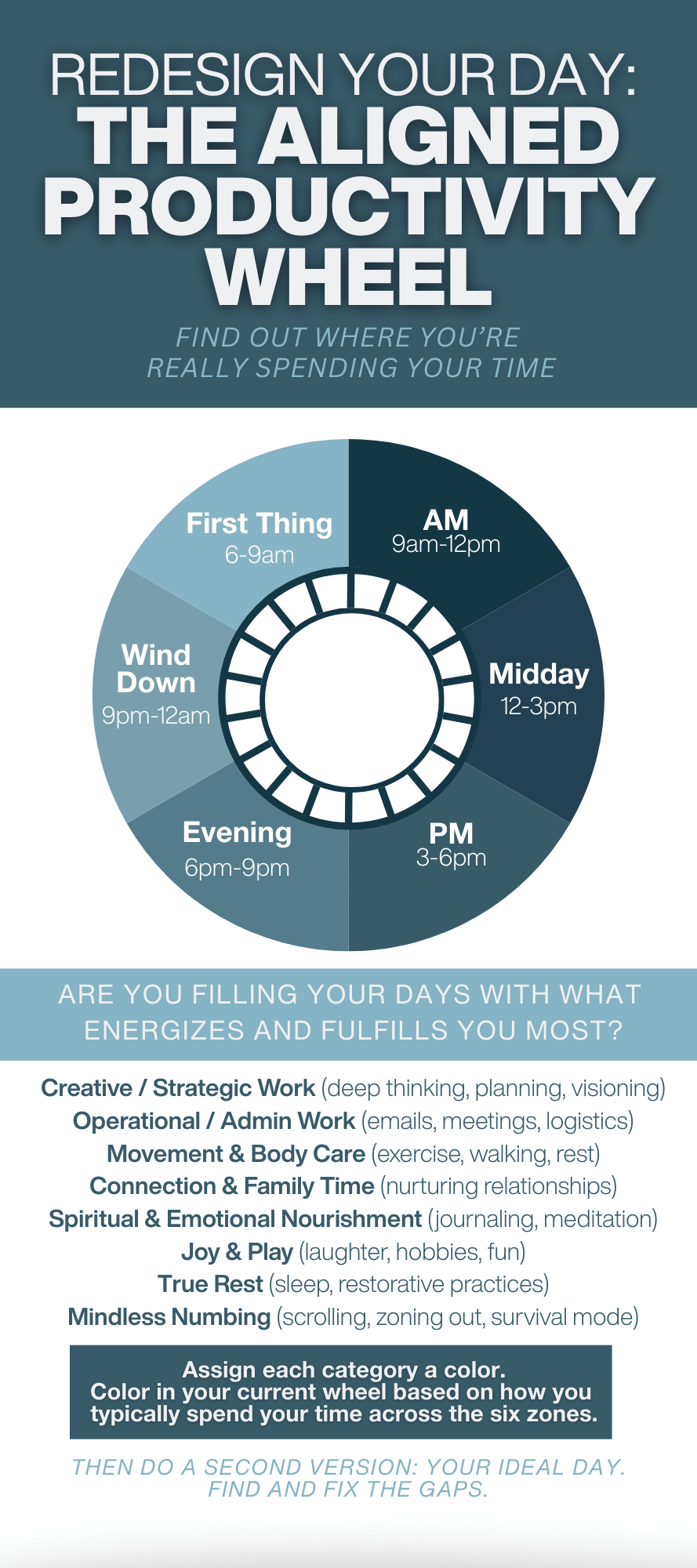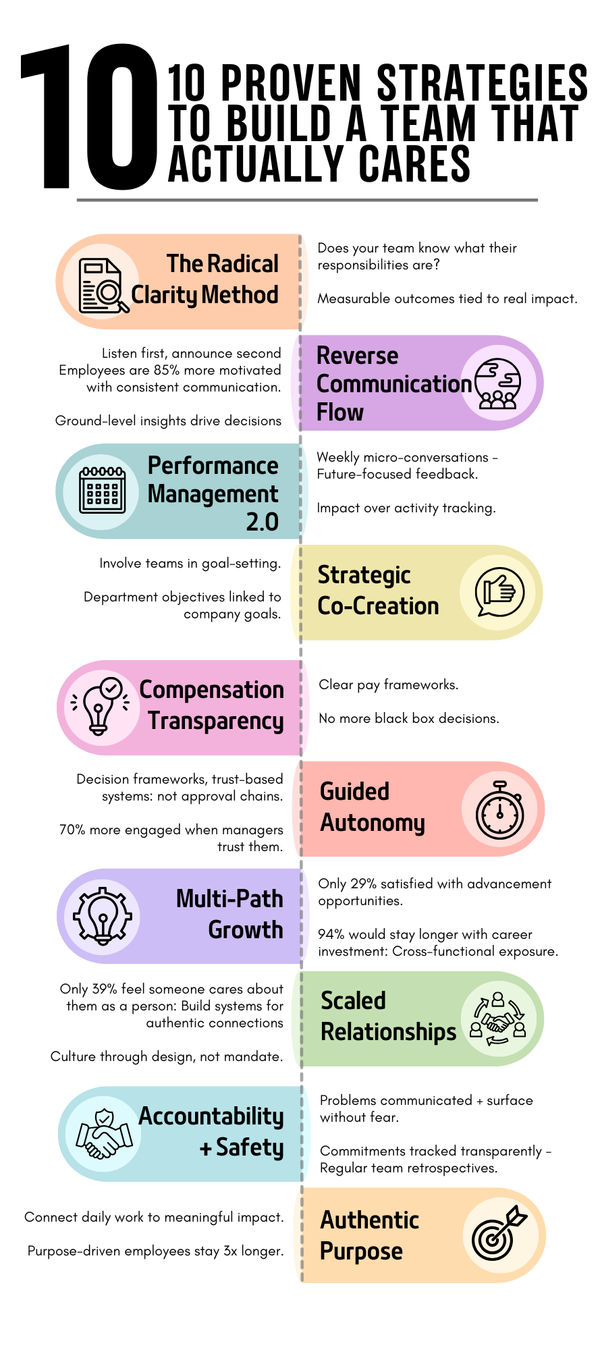
Want My Help?
here
I enjoyed reading a recent article by Laura Vanderkam for Inc. titled "The Downside to Being Super Efficient at Work." It's a great read – and, frankly, a perfect illustration of the distinction between being really productive and being ridiculously efficient®. The key is what I call rebellious productivity™.
In the Inc. article, Vanderkam notes the soft skills needed for career success, above and beyond just getting things done quickly -- namely, socializing with colleagues and building key relationships. Focus too intensely on crossing off to-do list checkboxes, and you risk not getting recognized, rewarded and respected for your hard work. All valid concerns.
But this focus on general socialization underscores the distinction between productive, super efficient and Ridiculously Efficient®. Most productive people, at least at the start, just churn out work without a bigger context. And that's fine -- but there's no strategy, so it isn't sustainable, and it doesn't enable continuous self-improvement. Many folks in this camp eventually stagnate or, worse, burn out.
For us, there's always a why attached to every what and how. Sharing that with others while you socialize is a differentiator that enables rebellious productivity™. Let me tease this out a little.
Your Why
Your why governs what you do with the time you free up by becoming effective. It's like a North Star that helps you navigate everyday life, and it's different for everyone. Forget this, and while you remain productive, you never become ridiculously efficient®, because the sheer emotional energy required to get and stay effective will burn you out.
For leaders, understanding someone's why gives you unparalleled insights into how to manage, motivate and mentor them. For team members, knowing everyone else's why gives you context for their actions and interactions. It also enables you to gel together and fight office politics, through the magic of empathy.
When you don't understand someone's why, you can easily misunderstand their motivations for being effective and efficient, and even introduce critical miscommunication into team dynamics -- which cripples team productivity, engagement and motivation.
Take a look at the following examples, where we use "so that I can" to introduce the why.
John: I'm ridiculously efficient at work so that I can complete more tasks in my workday, leave on time and help out at my son's baseball practice.
Cathy: I'm ridiculously efficient at work so that my boss and colleagues will respect my work, promote me and help advance my career.
Adam: I'm ridiculously efficient at work so that I can spend less time on tedious work and more time on passion projects that aren't part of my core responsibilities, but are personally significant to me.
For John, the why isn't career-related at all, it's quality time with his son. For Cathy, the why is recognition and growth. For Adam, the why is purpose.
Can you imagine where signals might get crossed when team members don't understand each other's why?
"John isn't dedicated -- he's out of the office at 5 p.m. on the dot every day."
"Cathy's ruthless, she only cares about what you can do for her."
"Adam's just doing the bare minimum. Every time I walk by, he's working on some side project.”
Proactively sharing your why eliminates drama -- unless, of course, your coworkers and boss are jerks.
Enabling Rebellious Productivity™
When you know your why, it's freeing. All decision-making becomes very simple: Every decision and action must directly tie into driving results that align with your why.
Yes, yourwhy. Not your boss' why or your colleagues' why or your spouse's why. Sure, we can all take actions that support someone else's why, for a little while. But we can't sustain or scale these actions unless they align with our why. And we sure can't do these actions at a ridiculously efficient® scale.
But what happens when you can spin almost every activity you do into something that supports your why?
When you can find a way to say "Yes, and..." to incoming requests, transforming even crazy requests into something that also taps into your why, you practice resourcefulness and resilience.
To pull this off requires nontraditional thinking and unconventional strategies. That's why rebellious productivity™ is the secret ingredient to becoming ridiculously efficient®.
Let's imagine that John, Cathy and Adam from the examples above have all been volunteered to take on an extra project that requires weekend work and doesn't have a clear deadline for completion.
Let's compare how they might typically reply, versus how I'd coach them to respond. Which approaches do you think are most sustainable over the long term?
Productive John: Okay, but this is really going to impact my family life.
Ridiculously Efficient John: I'm open to taking this project on, and know I can create immense value, but staying active in my son's life is important to me. Can we experiment with a barter? I'll work the equivalent of a full workday on my weekend in exchange for leaving 30 minutes earlier during the week. But some days I won't be available -- my kids come first. What I can do is provide you with a list of blackout dates for weekend tournaments in advance, and help arrange for a teammate to cover me while I'm gone.
Outcome: The boss gets what he wants. John takes on the extra project, but in a way that aligns with his why. Because it's positioned as an experiment, there's no obligation or risk: they can always redesign the arrangement.
Productive Cathy: Okay, I'll make it happen.
Ridiculously Efficient Cathy: Great! I've been meaning to ask you how I can contribute more value to our organization. Let's define what success looks like for this new project. If I exceed expectations, I'd love to explore other opportunities like this to create impact on a bigger scale.
Outcome: The boss gets what she wants. Cathy expresses her desire to ascend within the company take on ever-increasing responsibilities. Because she's positioned the growth opportunity as contingent on success, the boss isn't cornered into giving Cathy a promotion unless she's earned it.
Productive Adam: Okay.
Ridiculously Efficient Adam: Sure, I can get this project going and create momentum, but I need to understand the timeline to contextualize my involvement. I can devote X [weeks/months] to starting the project, but to be honest, I don't have the [resources/passion/interest/bandwidth] to take this project to completion. Let's plan for me to initiate the project, cross-train another team member, and hand it off at Y [date].
Outcome: The boss gets what he wants: help starting the project. Adam candidly expresses his interest (or lack thereof) in permanently owning the project (which would compromise his time for passion projects). Because he's proactively planned to cross-train his successor and created a timeline for handoff, the boss doesn't bear the burden of training and replacing Adam.
See where the rebelliousness comes in? It's finding a way to say yes that doesn't compromise your key motivators.
Knowing and using your why is just one facet of being ridiculously efficient, but it's the biggest thing that most people miss.









Member discussion